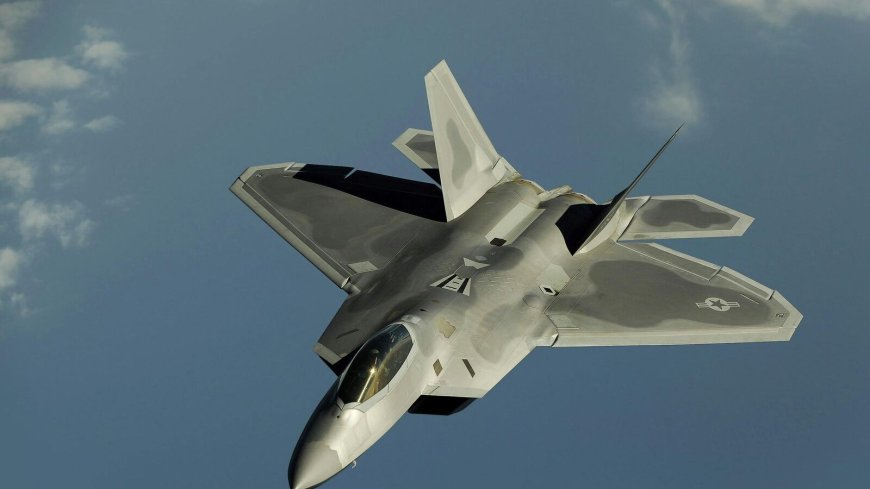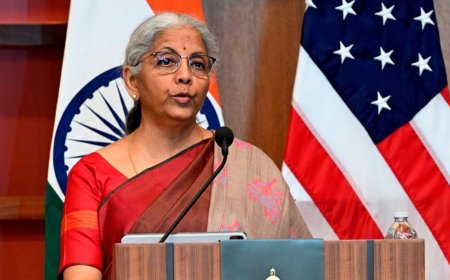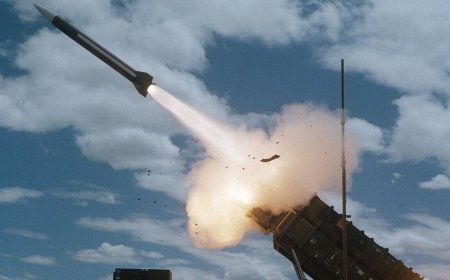Dassault Aviation, Lockheed Martin shares remain in focus as India eyes more fighter jets amid border threats
Dassault Aviation and Lockheed Martin shares stay in investor spotlight as India plans major fighter jet acquisitions to bolster airpower amid rising border tensions. Defense stocks poised for long-term gains.

Dassault Aviation, Lockheed Martin Shares Remain in Focus as India Eyes More Fighter Jets Amid Border Threats
By Prasad Bhave | June 5, 2025
As geopolitical tensions continue to simmer along India’s northern borders, the Indian government is reportedly accelerating its defense procurement plans. Global defense giants Dassault Aviation and Lockheed Martin have emerged as frontrunners for upcoming fighter jet acquisitions, driving investor focus to their stocks amid renewed interest in India's strategic defense upgrades.
Strategic Recalibration: India’s Growing Jet Demand
The Indian Air Force (IAF) currently operates below its sanctioned strength of 42 fighter squadrons, with only 31 fully operational squadrons. With ongoing threats along the Line of Actual Control (LAC) and instability across neighboring regions, defense analysts anticipate a significant procurement push from New Delhi.
According to defense officials cited by leading publications, India is weighing the purchase of more Rafale fighter jets from Dassault Aviation as well as F-21s (a variant of the F-16 designed for India) from Lockheed Martin under the Multi-Role Fighter Aircraft (MRFA) program. This strategic diversification of its aerial fleet is being viewed as both a deterrent and an operational necessity.
“With two active fronts and a possible third maritime one, India cannot delay modernizing its airpower. The current geopolitical climate necessitates rapid and robust induction of multirole jets,” said Group Captain Praveen Kumar (Retd.), a defense analyst based in Delhi.
Market Reaction: Stocks Under the Radar
The shares of Dassault Aviation (EPA:AM) and Lockheed Martin Corporation (NYSE:LMT) have remained in sharp investor focus since early June. Both stocks saw minor rallies following reports of India’s defense meetings and procurement intentions.
-
Dassault Aviation: The French company, which previously delivered 36 Rafale jets to India, gained over 2.1% this week on expectations of an additional order of 26 aircraft, potentially for the Indian Navy's carrier fleet.
-
Lockheed Martin: Shares have held steady with a slight upward bias as the company reiterates its long-term commitment to India through its F-21 offering, emphasizing Make-in-India opportunities.
“Any fresh order from India—especially under the MRFA or AMCA offset clauses—could translate into multi-billion dollar deals over the next decade. Investors are betting on a long-term India-defense tailwind,” said Emmanuel Lopez, a Paris-based aerospace equity strategist.
Defense Modernization Budget: A Boost to OEMs
India's defense budget for FY26 saw a 13% year-on-year increase, reaching ₹6.2 lakh crore (~$75 billion), with over $20 billion earmarked for capital acquisitions. A significant chunk of this is being directed toward airpower modernization, including fighters, UAVs, and surveillance aircraft.
The focus is not only on capability expansion but also on technological parity with regional adversaries. The MRFA program—valued at around $18 billion—includes an emphasis on technology transfer, indigenous assembly, and private sector involvement.
“It’s not just about buying jets. It’s about building capability. OEMs offering industrial collaboration and local manufacturing have the edge,” said Rahul Bhasin, aerospace sector head at Quantum Research India.
Indigenization & Global Partnerships
While India is steadily pushing the envelope with indigenous platforms like the Tejas MK-1A and the upcoming AMCA, international partnerships remain critical in filling the near-term gap.
Dassault and Lockheed Martin are competing not just on aircraft capabilities but also on offset proposals. Dassault already has established production partnerships with Reliance Aerospace, while Lockheed is aligned with Tata Advanced Systems for manufacturing F-21 components.
In response to the developments, both companies have made recent statements reiterating their commitment to India:
-
Dassault Aviation: “We value our strategic relationship with India and remain ready to support the Indian Air Force and Navy with proven and scalable fighter solutions.”
-
Lockheed Martin: “We believe the F-21 offers unmatched capabilities tailored to India’s operational and industrial needs, leveraging deep Make-in-India synergies.”
Investor Outlook: Steady Flight or Turbulence Ahead?
For investors, defense stocks are often seen as stable long-term bets, particularly amid geopolitical instability. However, they are also susceptible to bureaucratic delays, budgetary revisions, and diplomatic dynamics.
“While the narrative supports defense stock accumulation, execution timelines and procurement cycles are long and non-linear. Investors should moderate expectations and remain selective,” cautioned Arun Mittal, senior portfolio manager at Axis Securities.
Risks to Watch:
-
Policy Delays: Prolonged negotiations or bureaucratic inertia can delay procurement, impacting revenue projections.
-
Local Manufacturing Shifts: A stronger push for indigenization could reduce margins for OEMs unless offset agreements are well-structured.
-
Diplomatic Pressures: Shifting global alliances or sanctions could affect international cooperation in defense technology.
India’s evolving security landscape and emphasis on aerial superiority are providing fresh tailwinds to global defense manufacturers. Dassault Aviation and Lockheed Martin remain well-positioned amid New Delhi’s accelerated procurement push. However, the path ahead will depend on both strategic alignment and operational execution. For investors, patience and a long-term view will be key in navigating the defense aerospace investment space.
What's Your Reaction?
 Like
0
Like
0
 Dislike
0
Dislike
0
 Love
0
Love
0
 Funny
0
Funny
0
 Angry
0
Angry
0
 Sad
0
Sad
0
 Wow
0
Wow
0












































































